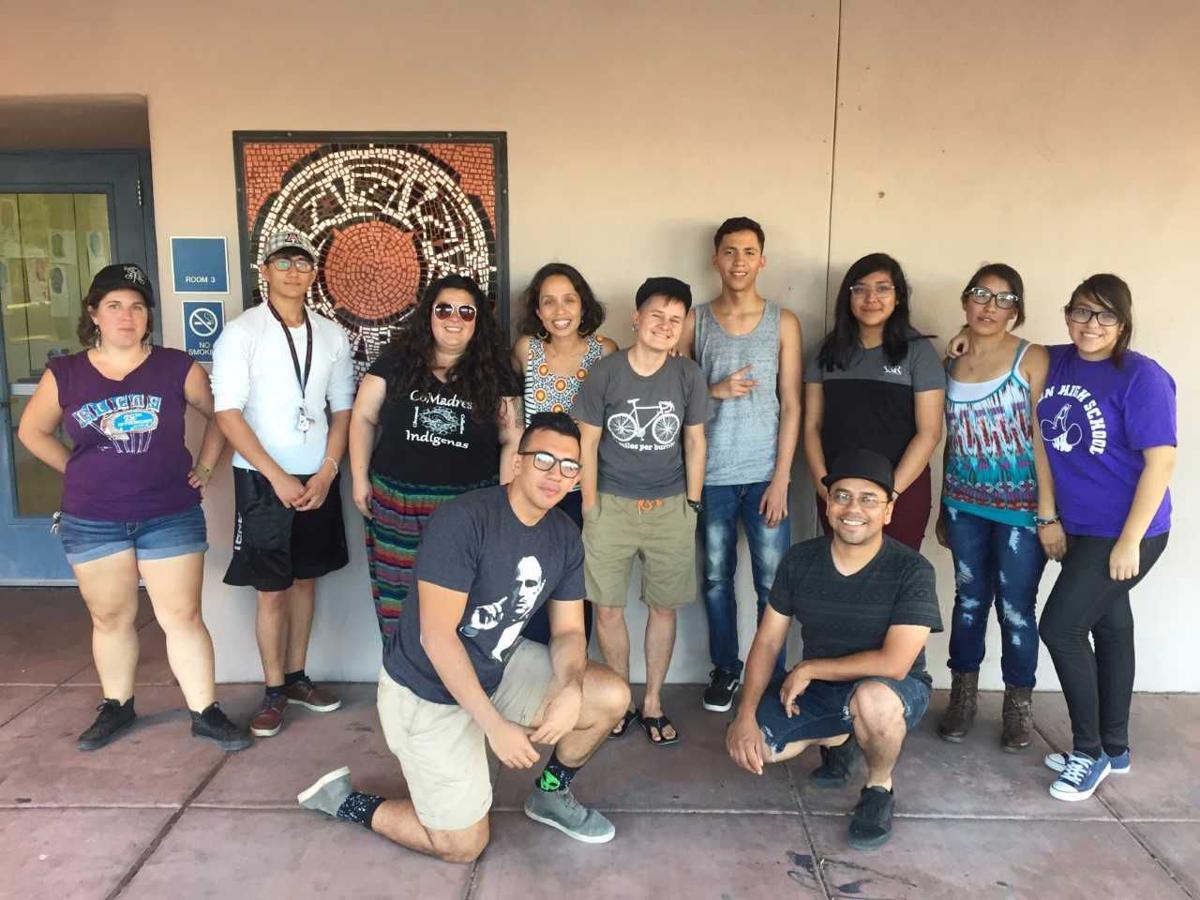When he's not running late, 16-year-old Estevan Gallego rides his bike to school.
Although Estevan learned to ride a bike as a kid, to him, bicycling became so much more than a casual loop around the block.
A junior at Tucson High Magnet School, Estevan volunteers with the bike club at Ochoa Elementary School.
"It's not just a way of transportation, but it's also a way of getting to know yourself better, whether pushing yourself or feeling good about yourself or learning about things around your community and neighborhoods," he says. "It's a wonderful feeling you have when you ride a bike and know it's good for me and the community and the world."
That's why Estevan is one of six young people from south-side neighborhoods who spent the weekend in Washington, D.C. for the Youth Bike Summit.
He sees how bicycling can impact a community.
Living Streets Alliance and BICAS partnered to sponsor the 10-person delegation's trip to the national, three-day conference. BICAS (Bicycle Inter-Community Art and Salvage) has sponsored smaller groups in past years, but this is the first year the two Tucson nonprofits partnered to take a delegation, says Vanessa Cascio, a program manager for Living Streets Alliance.
"The reason that (the conference) exists is because a lot of conversations about transportation weren't centered on youth, and a lot of times, it's youth that need transportation options," Cascio says. "It's a variety of different topics, focusing on how bikes can be used to elevate the heath of young people and communities and make a positive change."
The teenagers selected to go, with ages ranging between 14 and 19, have been involved in "starting up bike clubs and working with community gardens" as leaders in their neighborhoods and schools, Cascio says.
A grant from the Vitalyst Health Foundation funded much of the trip, but the delegation is still raising money to cover the trip. You can donate here.
For most, if not all, of the teens traveling, this was their first time flying on an airplane, Cascio says. They're staying an extra day in D.C. to do some sightseeing.
Itzel Macias is a 14-year-old Rincon High School freshman who joined a bike club in middle school at the bequest of her principal.
"They taught us how to fix our bikes and check to make sure they're safe and how they ride and how to pump air and the signals to do when we're out on the street," Itzel says.
When her peers say riding a bike is something kids do, Itzel says they just don't understand.
"I bike honestly anytime I'm free," she says. "If I'm stressed out, it's like, 'Let's go on a ride. Let's get our helmets ready. Let's go.'"
Gene Martinez, 19, works at the John Valenzuela Youth Center in South Tucson. He runs the center's weekly bike club with as many as 50 or 60 kids participating at a time.
"I started when I was in high school and thought it was embarrassing for my mom to drive me to school, so I said, 'I want a bike for Christmas,'" he says. "I was a bit overweight, and that helped me battle that ... and just right off, I started feeling connected to my community..."
The Tucson High graduate plans to apply what he learned at the conference to the center's bike club when it starts up in a few weeks.
"We're putting the goal-setting in their hands," Cascio says. "A lot of them have voiced interest and have experience working with younger kids and see the need for bringing bike resources and education to their neighborhoods."
Cascio says the adults in the delegation wanted to compare how other cities involve youth in planning educational opportunities and city development.
"It's important to involve youth in these conversations because as we move forward into the future, our communities continue to face social inequities such as poverty," wrote Nelda Ruiz with Tierra Y Libertad Organization in an email. "We see bicycling as able to tackle a lot of these symptoms. ... If you want youth to start taking charge and develop as leaders, we need to get them involved in these conversations now, because they have the potential to plan and design what our communities can look like in the future ..."
Bike clubs such as the ones Estevan, Itzel and Martinez have participated in create independence by teaching kids how to use a bike for transportation in a safe way.
"Transportation is often a barrier for them to get involved in extracurricular activities because they come from working families," Cascio says.
Riding bikes is also economical and a way to improve social skills, Estevan adds.
"Me, I started riding my bike to be more active, but that was really a pathway to being connected to my community," Martinez says. "A bunch of places I didn't know about until I started riding my bike. When you're riding a bike, it opens your eyes to people and places you wouldn't have seen otherwise. It builds a bit of maturity because you're on your bike by yourself and you're on the street."





